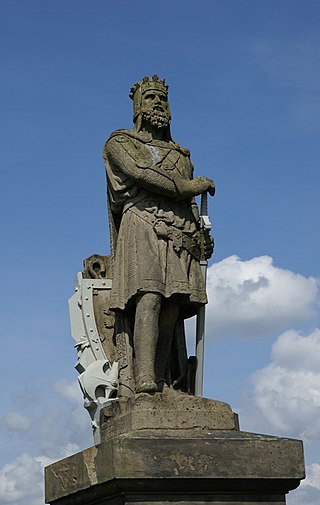Fictional characters
- Landonis Balthazar "Lando" Calrissian III, fictional character in Star Wars better known as Lando Calrissian
- Mathilda Lando, fictional character played by Natalie Portman in Léon: The Professional
Lando is both a masculine Italian given name and a surname. Notable people with the name include:

Alexander is a male given name of Greek origin. The most prominent bearer of the name is Alexander the Great, the king of the Ancient Greek kingdom of Macedonia who created one of the largest empires in ancient history.

Alphons is a male given name recorded from the 8th century in the Christian successor states of the Visigothic kingdom in the Iberian peninsula. In the later medieval period it became a standard name in the Hispanic and Portuguese royal families.

Landonis Balthazar "Lando" Calrissian III is a fictional character in the Star Wars franchise. He was introduced in The Empire Strikes Back (1980) as an old friend of Han Solo and the administrator of the floating Cloud City on the gas planet Bespin. Prior to the events of the film, Lando made a career as a gambler, con artist, playboy, mining engineer, and businessman, and was the owner of the Millennium Falcon until losing the ship to Han in a bet. In the film, when Cloud City is threatened by the Galactic Empire, Lando reluctantly betrays Han to Darth Vader, but later redeems himself by helping Han's friends escape from the Empire. In Return of the Jedi (1983), after becoming a general in the Rebel Alliance, Lando helps rescue Han from Jabba the Hutt and leads the attack on the second Death Star.
Sylvester or Silvester is a name derived from the Latin adjective silvestris meaning "wooded" or "wild", which derives from the noun silva meaning "woodland". Classical Latin spells this with i. In Classical Latin, y represented a separate sound distinct from i, not a native Latin sound but one used in transcriptions of foreign words. After the Classical period y was pronounced as i. Spellings with Sylv- in place of Silv- date from after the Classical period.
Lando may refer to:

The name Robert is an ancient Germanic given name, from Proto-Germanic *Hrōþi- "fame" and *berhta- "bright" (Hrōþiberhtaz). Compare Old Dutch Robrecht and Old High German Hrodebert. It is the second most frequently used given name of ancient Germanic origin. It is also in use as a surname. Another commonly used form of the name is Rupert.

Richard is a male given name. It originates, via Old French, from Old Frankish and is a compound of the words descending from Proto-Germanic *rīk- 'ruler, leader, king' and *hardu- 'strong, brave, hardy', and it therefore means 'strong in rule'. Nicknames include "Richie", "Dick", "Dickon", "Dickie", "Rich", "Rick", "Rico", "Ricky", and more.
Lucius is a masculine given name which began use as Lucius, abbreviated L., one of the small group of common Latin forenames found in the culture of ancient Rome. Lucius probably derives from Latin word lux, meaning "light", related to the Latin verb lucere and cognate to the name Lucas. Another proposed etymology is derivation from Etruscan Lauchum meaning "king", which was more directly transferred into Latin as Lucumo.
Enrico is both an Italian masculine given name and a surname, Enrico means homeowner, or king, derived from Heinrich of Germanic origin. It is also a given name in Ladino. Equivalents in other languages are Henry (English), Henri (French), Enrique (Spanish), Henrique (Portuguese) and Hendrik (Dutch). Notable people with the name include:
Landulf II (c. 825 – 879) was Bishop and Count of Capua. He was the youngest of four sons of Landulf I, gastald of Capua. As a young man, he entered the church. When his father died, his eldest brother, Lando, succeeded him.
Lando III was the count of Capua for two years and ten months from 882 to his death. He was a son of Landenulf, gastald of Teano, and grandson of Landulf I of Capua.
Pando the Rapacious was the second son of Landulf I of Capua and brother of Lando I. When his father died (843), Lando succeeded to the countship, but Pando and their younger brother Landulf were associated as co-rulers. In fact, he went to Salerno, where he became a marepaphias.

The Principality of Capua was a Lombard state centred on Capua in Southern Italy. Towards the end of the 10th century the Principality reached its apogee, occupying most of the Terra di Lavoro area. It was originally a gastaldate, then a county, within the principality of Salerno.
Rizzo is a surname of Italian origin, denoting a person with curly hair or a variation of the surnames Ricci and Risso.
The Landulfids or Atenulfings were a noble family of Lombardic origin in the ninth through eleventh centuries. They were descended from Landulf I of Capua, whose own ancestry is unknown and who died in 843. The dynasty produced a line of princes which ruled most of southern Italy at one time or another and even one pope, Victor III.
Giulio is an Italian given name. It is also used as a surname. Notable people with the name include:

Conrad is a Germanic masculine given name and a surname.
Giovanni is a male Italian given name. It is the Italian equivalent of John. Giovanni is frequently contracted to Gianni, Gian, or Gio, particularly in the name Gianbattista, and can also be found as a surname. It is sometimes spelt as Geovanni, Giovonnie, Giovannie, Jiovanni, or, when used as an English name, its female counterpart is Giovanna.
Lamberto is an Italian male given name taken from the name Lambert. It may refer to: